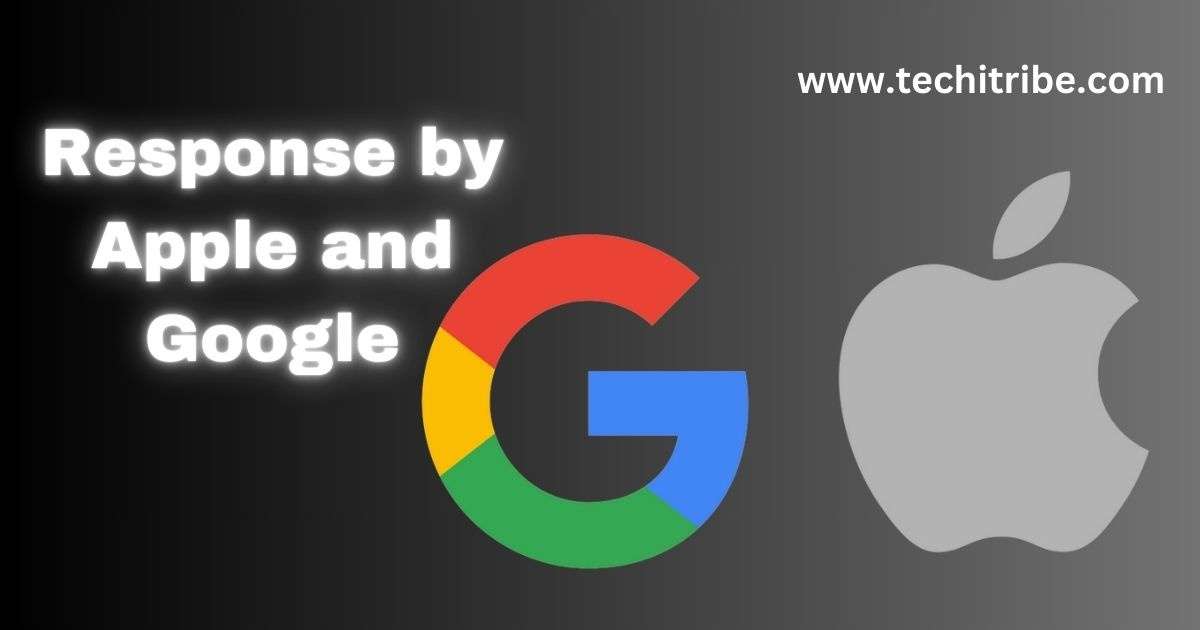UK Apple Google Antitrust, These were massive probes initiated by the UK’s Competition and Markets Authority on the two global leaders in mobile technology: Apple and Google. These questions shoved mobile technology decidedly closer to massive competition inquiries and their result product: whether one or both of these technology behemoths will ultimately end up being found to have abused their quite enormous market powers in ways that the UK’s very stringent digital competition law forbids.
Also visit this link: The Marvel of Human Hands: Why Robots Can’t Keep Up

New Powers in the DMCC
UK Apple Google Antitrust, As of 2023, about the space, it is also becoming within digital space in the UK with DMCC as the Digital Markets, Competition, and Consumers Act that just starts from expanding the power that CMA possesses for taking on the challenge of anti-competitive actions undertaken by dominant participants in the digital marketplace.
What has given the CMA the rights is the authority that allows the government to give strategic market status to a company that dominates major parts of a market. In layman’s words, strategic market status is a severe classification since, through it, regulation can impose the form of alterations to anti-competition practices.
Mobile Ecosystem
UK Apple Google Antitrust, It looks into the share of the mobile market, especially the share between Apple and Google; these two represent a highly large share in the market. The regulator is said to indicate that almost all smartphones sold in the UK are either running on iOS systems developed by Apple or Android by Google operating systems. Their app stores and browsers dominate each of those platforms and are crowding competing products and services out to the side.
This new power of regulation seeks an answer in growing attention worldwide to the role of these tech giants. The U.K. is likely to be first among equals that would lead in making this a real digital market, innovation, and competition, to avoid a straitjacket of monopolistic conduct.
Areas of Concentration for CMA Investigation
UK Apple Google Antitrust: The CMA has identified three areas of critical investigation in its dual probes. The factors are therefore important to the understanding of how Apple and Google operate in the mobile ecosystem:
Competition Between Ecosystems: The CMA will investigate whether the iOS and Android ecosystems are competitively balanced or if one ecosystem is using its power to inhibit innovation.
Market Power Across Markets: The CMA will also assess whether Apple and Google use dominance in one market to build into other markets. For instance, do they use their advantages to impose restrictions on substitutes in app store distribution or alternatives for internet browsing?
Exploitative Conduct: Finally, the authority will look at whether either of them engaged in exploitative conduct that harmed consumers or other businesses who were creating apps.
According to the CMA, this might have rather important implications. The authority still argues that new competition would yield only to even newer innovations within a mobile ecosystem—the better for a consumer or firm.
According to the chief executive of CMA, Sarah Cardell, many new opportunities will unlock where businesses can innovate new types of products on the dominant platforms due to increased competition. The CMA will make sure that the benefits of competition go deep into the digital marketplace, thus benefiting users up and down the country.

Response by Apple and Google
Response by Apple
UK Apple Google Antitrust, For the first time since CMA began investigations into its practices, Apple has said it believes competition is healthy and that commitment to markets where innovation could thrive is essential. Our spokesman explained competition exists in all our operating areas.
Apple was even more aggressive on economic footprint grounds as it indicated that the iOS app economy has generated hundreds of thousands of jobs in the UK, and the company was willing to engage constructively with the CMA at all stages of the investigations, demonstrating innovation in the fact that it agrees with the comments made by the regulatory bodies.
Google kept mum.
UK Apple Google Antitrust, Till now, Google hasn’t replied to the antitrust investigations, but Google always claimed to be providing a lot of choices to the customer by its very diversified portfolio of products and services and giving a platform for many developers.
The silence does not seem to have anything immediate to say about the public relations strategy in the wake of rising regulatory hurdles. The company is one of only two market leaders, so what it says and does next will shape how the public thinks about it—even the ultimate outcomes of these investigations.
Public Perception of Using Mobile Phones in the UK
UK Apple Google Antitrust, Some relevant to the implications of these studies with regards to using mobile devices within the United Kingdom include: around a little over 94 percent, who are above the age of 16 and consist of around about 56 million people in terms of using the smartphone. This equipment is well beyond mere communications; rather, it is utilized almost as an important tool in receiving service, entertainment, and information.
Average consumption of the users of Britain takes around three hours a day over mobile. Really very long and depicts importance for an imperative mobile ecosystem so that innovations happen and enhance the experience of users.
Why Competition Matters
UK Apple Google Antitrust, In other words, the sharper the competitive landscape differences in respect of price, service, and innovation are, the worse; and vice versa, while compared to those better differentiated choices, translating to higher and deeper diversity among differentiated offers targeted towards responding to various needs and aspirations. Sensible scrutiny of the said system, or any giants—in short, apples, googles; therefore, the CMA would strive and establish rather a well-balanced multiple environment, dimensioning player opportunity, and potentially capable of growing and coexisting in harmony.

Global Background
Sophisticated Regulatory Framework
UK Apple Google Antitrust Investigations by the CMA are part of a global trend that regulates big tech companies. Around the world, most countries are seeking to know how they should control the big digital players as their powers and influence stretch so far and wide.
The European Union has progressed on the regulation of digital markets and published very rigid rules so that consumers and corporations are protected. Such a move from the world has a trend: a common realization in the need for innovation yet restraint of undiluted control by a few firms that restrains market dynamism.
Conclusion: Lessons in Other Regions
UK Apple Google Antitrust, The CMA may, for some valuable lessons, study how other regions are handling anti-competitive behavior. Experts have averred that the DSA and DMA constitute ambitious regulatory frameworks the EU is building to ensure that it achieves a level playing field for the tech sector.
This would mean that if the UK were able to enforce strict regulations, then indeed, it would have a serious effect on other markets. It will, in turn, increase the pressure levels on other countries to take similar measures, thereby making it difficult for the large tech firms to remain obscure.
Future Ahead
Demand for Transparency
UK Apple Google Antitrust, Deep transparency will characterize the investigation process. All stakeholders in the chain, from consumers to businesses to policymakers, are going to be watching the progress of these questions. The actions, therefore, of the CMA will then become extremely pivotal in setting precedence for further interactions between regulators and the tech giants.
Apple and Google will have to live with the raised expectations that result from that and at the same time contend with the current practice. That will be huge for them, as how they handle CMA will determine their public image and people’s confidence in them.
Future of Mobile Innovation
The results may change the mobile landscape in this country if the Competition and Markets Authority can make meaningful remedial orders.
This may be an opportunity for change in such a way that developers and consumers reap the benefits of a healthier competitive environment, one among many possible outcomes.
Big tech companies have always led the ecosystems, yet given this background, proactive leadership on the part of the CMA opens new avenues, and in doing so offers an opportunity for a number of small developers to gain success.
Conclusion: Eyes on the Titans
UK Apple Google Antitrust, This is a watershed in the fight for a more level digital playing field. Armed with fresh powers to supervise, this authority is well positioned to take on the behaviors that could otherwise be deemed anti-competitive and positively clog up innovation: a twin probe into Apple and Google.
Stakeholders will sit and watch to see how that unfolds and makes the future in mobile technology into a reality in Britain and beyond. Ultimately, it may even be the warfare between these technological giants that provides a way toward a more competition-based market when consumer choice supersedes mere innovation.
